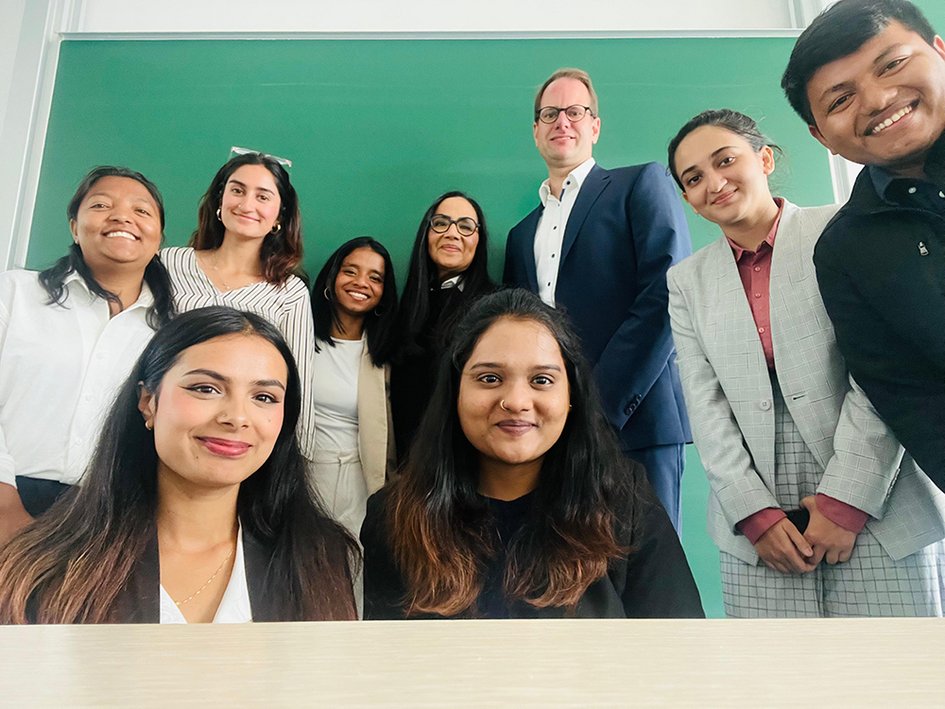On May 16, 2025, Lars Bruhnke, Director of Partnerships at Volkswagen AG and author of the book “Future Changes in Emissions Limits within the EU – Legal Comparison with US Law”, delivered a conference titled “How to Handle Legal Requirements in a Multinational Company” to students from India and Nepal participating in the DAAD-SDG Partnerships Project “Implementation of the Sustainable Development Goals – India, Nepal, and Germany.”
Lars Bruhnke, an accomplished legal professional holding two German Diploma degrees - one in Business Law and another in Law with major international law - leveraged his extensive corporate experience at Volkswagen and other leading institutions to help students navigate the legal complexities faced by multinational corporations. His involvement in data protection, regulatory liaison, and corporate partnerships provided students with a rare, real-world perspective on the legal framework that supports global business operations.
Drawing on this expertise, he provided a thorough overview of the legal requirements for multinational companies entering foreign markets, stressing the importance of Non-Disclosure Agreements (NDAs), the strategic choice of governing law, and the identification of suitable jurisdictions for dispute resolution. The discussion also covered the structuring of these legal instruments in cross-border contexts, as well as the regulatory approvals required, such as those from Type Approval Authorities, before launching vehicles in international markets. He further emphasized the necessity of customizing legal strategies to local consumer behavior, cultural expectations, and jurisdiction-specific regulatory environments to ensure both compliance and commercial success.
Students gained key insights into compliance with data protection laws in jurisdictions like the U.S., Mexico, and Germany, as well as the role of international arbitration in resolving transnational disputes. A publicly known case served as a compelling case study that illustrates how legal obligations differ across countries, highlighting the importance of multi-jurisdictional compliance and independent legal monitoring.
To complement their acquired knowledge, students visited the Volkswagen factory, accompanied by Dr. Ruth García-León, coordinator of the DAAD SDG-Partnerships Program. There, the students gained firsthand experience of operations at the world’s leading automotive company.
Overall, this unique session successfully bridged theory with global corporate practice, offering an invaluable learning experience for all participants.


